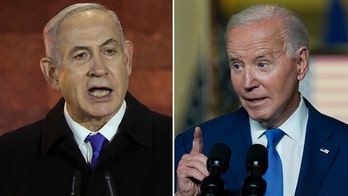U.S. Representative Michelle Steel introduces legislation to restrict access to American ports by companies owned by state-owned enterprises in China, Russia, North Korea, and Iran. The bill addresses concerns about the potential for adversaries to harm U.S. supply chains and compromise national security through infrastructure access.
In a move to safeguard American economic and national security, Representative Michelle Steel (R-Calif.) has introduced legislation to block companies owned fully or in part by state-owned enterprises in China, Russia, North Korea, and Iran from operating or managing U.S. ports. The Secure Our Ports Act aims to prevent adversaries from accessing U.S. shipping infrastructure and potentially harming supply chains.

Secure Our Ports: Bill Blocks Adversaries from U.S. Infrastructure
Steel, a member of the House Select Committee on Communist China, expressed concern that granting adversaries access to U.S. ports would enable them to disrupt trade and military mobilization. She emphasized the importance of protecting America's supply chains and restricting access to those who threaten the nation's existence.
The bill's co-sponsors include Representatives Stephanie Bice, Ken Calvert, Rick Crawford, Richard Hudson, Doug LaMalfa, Nicole Malliotakis, James Moylan, Aumua Amata Coleman Radewagen, John Rutherford, and Randy Weber.

Secure Our Ports: Bill Blocks Adversaries from U.S. Infrastructure
Steel's home region in Southern California houses two of the largest ports in the country, the Port of Los Angeles and the Port of Long Beach. Her office identified several China-owned conglomerates with active presence in American ports, including China Oil and Foodstuffs Corp. (COFCO) on the Mississippi River and China-Owned Shipping Company (COSCO) on the West Coast.
Concerns have been raised by national security and defense officials regarding the potential for giant cargo cranes at U.S. ports to be used for Chinese surveillance. Experts suggest that these cranes could provide valuable data on shipping activity and infrastructure vulnerabilities.

Secure Our Ports: Bill Blocks Adversaries from U.S. Infrastructure
The Secure Our Ports Act seeks to address these concerns and protect U.S. interests by prohibiting companies from adversarial nations from operating or managing U.S. ports. The bill safeguards national security and ensures a robust and secure domestic supply chain.
By restricting access to U.S. ports by state-owned enterprises from adversarial nations, the bill ensures that American infrastructure remains secure and that supply chains are protected from potential disruptions. The bill strengthens the nation's economic resilience and national defense posture, ensuring that U.S. ports remain a vital lifeline for commerce and trade.

Secure Our Ports: Bill Blocks Adversaries from U.S. Infrastructure










